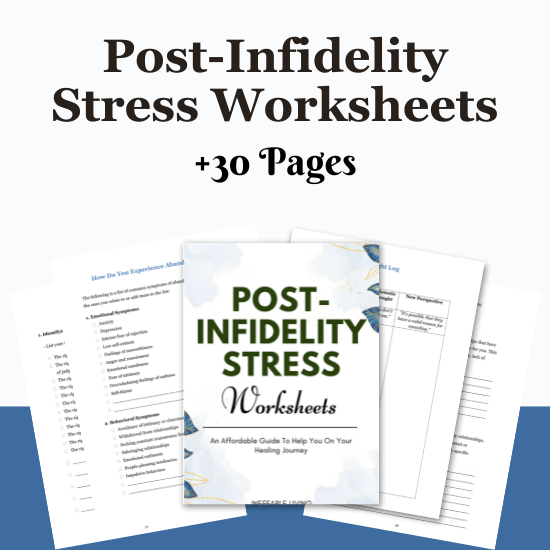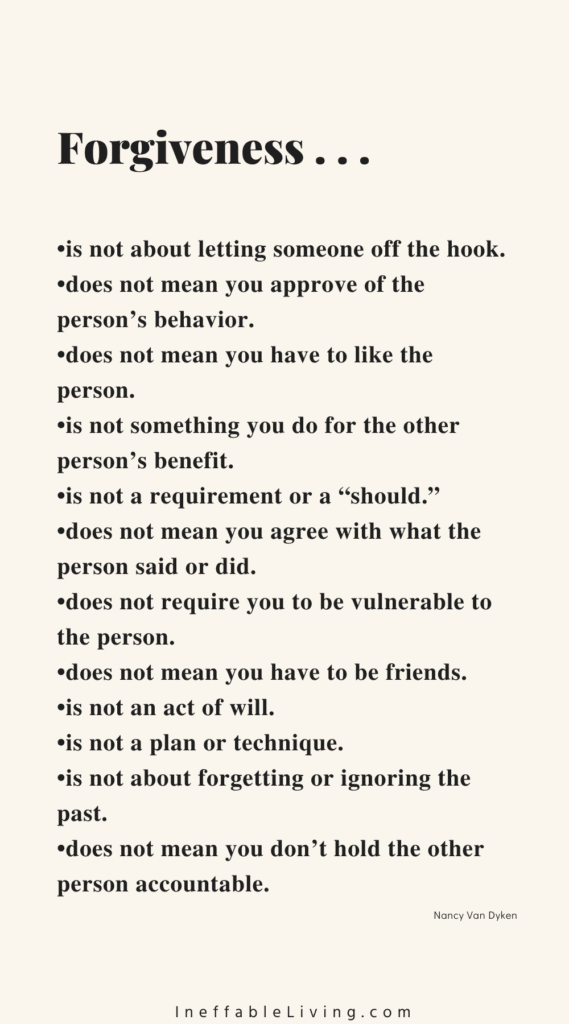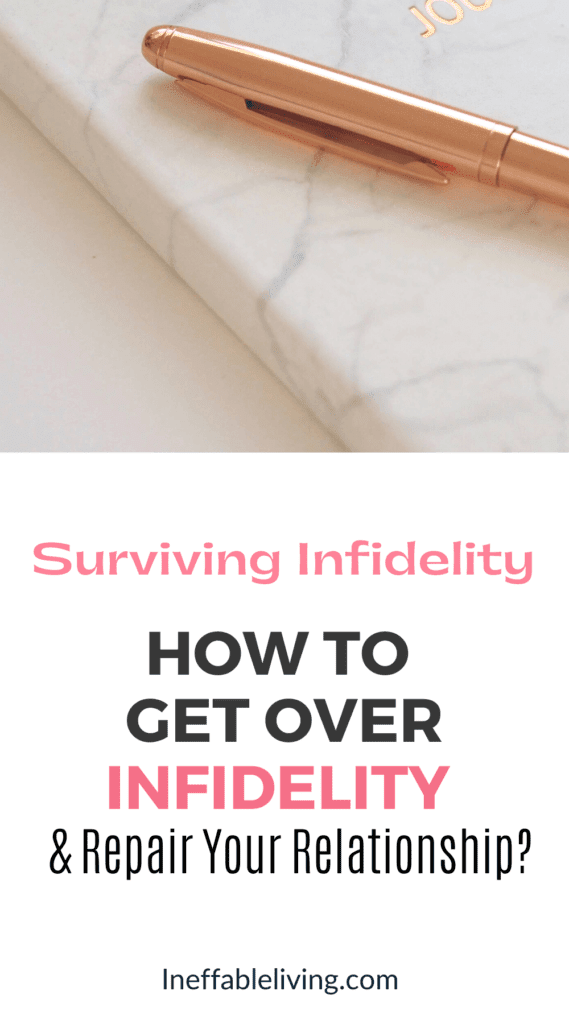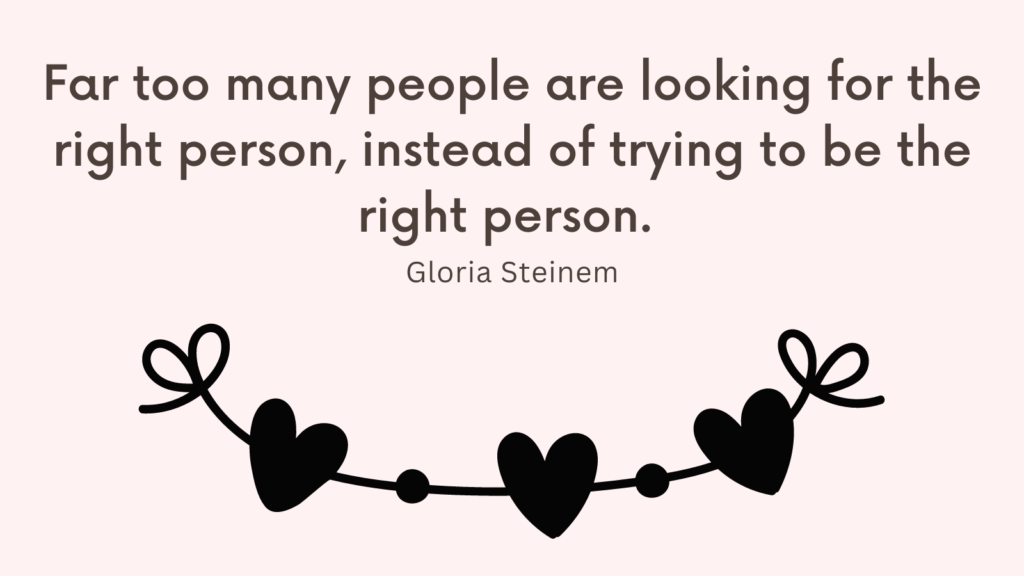Today, you’ll learn how to get past infidelity triggers, repair a marriage after infidelity and build trust again.
What Constitutes An Affair?
We feel hurt and betrayed whenever someone we’re counting on fails to live up to our expectations. Even when the other person swears that it was just an accident, we believe that if they really cared about us they wouldn’t have done that.
When thinking about betrayal, most people think about being cheated on or lied to. But betrayal and mistrust can come from a lot of little things, such as an insidious pattern of unreliability and inability to keep promises.
Whether the affair was coital or not, there is infidelity when there is a breach of trust.
Many would feel betrayed by the sending of a sexually explicit email or a semi naked picture, or a lunch, or a kiss.
Can a Marriage Survive Infidelity?
The answer is yes, provided that both partners are willing to put in the work, and learn the skills they need to resolve their underlying problems.
According to the American Association for Marriage and Family Therapy, national surveys show that 15 percent of married women and 25 percent of married men have had extramarital affairs.
The rates are about 20 percent higher when emotional and sexual relationships without intercourse are included.
Infidelity can be a devastating experience.
Is My Relationship Worth Mending?
In her book, I Love You But I Don’t Trust You, renowned couple’s therapist Mira Krishenbaum suggest answering the following six questions before deciding if your relationship is worth mending or not:
1. “Would you want this relationship if the trust could be restored?”
2. “Does the fact that this betrayal happened ruin everything for you?”
If you’re to look past your anger, did the betrayal change who this person is for you that you can’t imagine wanting to be with them?
3. “Can I imagine the possibility of forgiveness?”
4. “Does the person you mistrust care about how you feel?”
Have they gone out of their way to show their care?
5. “Can the other person work on your relationship with you?”
6. “What do I have to lose by giving our relationship a chance?”
It’s important to see past the betrayal and the anger as you think about these questions. Think about the relationship as a whole – the pre-betrayal relationship. Did you feel stuck with this person? Were you wanting out?
Top 8 Tips On How To Get Past Infidelity Triggers And Build Trust Again
Because we’re imperfect people who make mistakes, we can’t stop ourselves from hurting the people we love and being hurt by them.
Disappointments and betrayals too often destroy a relationship, but sometimes love can survive betrayal.
Depending on the study, between 40 and 70 percent of couples know they have significant problems with trust.
But while you can’t have relationships without disappointments and betrayals, you can’t have love without trust. When you have trust, you can relax, open up, and be yourself.
#1. Deal With The First Shock
The pain of infidelity can be quite profound. You don’t just lose trust in that person, but you may also lose trust in the world and yourself.
Your mind and body are likely to be in shock, battered by feelings so intense, you may start to wonder, “Am I going crazy?”
Realize that what you’re experiencing is a normal and appropriate response to a traumatizing experience.
You didn’t just lose your relationship, you also lost the illusion that you’re special to your partner and that the connection you thought you share with them would last forever.
Related: Post-traumatic stress disorder (PTSD): How to Heal Your Trauma?
The healing process begins when you allow your feelings to come out and make sense of your pain.
Undergoing such experience would cause changes in your nervous system and your cognitive functioning.
The release of stress-related hormones might cause a heightened state of arousal, making you constantly on the lookout for signs that your partner is cheating again. You may also experience sleep difficulties, anxiety, loss of confidence, feeling numb and detached, difficulty concentrating, etc.
Keep in mind that this is a normal reaction to infidelity.
#2. Answer The Question: “Can My Marriage Survive Infidelity?“
Deciding whether to work on rebuilding your relationship or end it, should be a deliberate decision, and not a reaction based on your feelings alone.
What feels right to you now, may later become an impulsive and unprocessed response that you regret.
After an infidelity, you will find yourself with 3 different options:
1. You can stay together and never address the reasons behind the affair or work to make sure that it won’t happen again.
2. You can stay together with at least one of you continuing to be unfaithful, while the other struggles with depression and anger.
These two options are dead-end.
3. You can stay together and work together to improve your relationship.
4. You can say goodbye and begin building separate lives. However, if you don’t work on the underlying issues of the affair, you risk repeating the same pattern with someone else.
When considering working on yourselves, you need to keep in mind that some type of personality will resist change, or refuse to take responsibility in the first place.
These personalities include
* Narcissists who would most likely blame you for the affair even when they’re the unfaithful ones,
* Sociopaths, or antisocial individuals, who compulsively lie and can be irresponsible in meeting work and family obligations,
* Individuals with borderline personality disorder, who are often moody, anxious, and hostile, which can leave you drained emotionally.
4. Drug and Alcohol Addicts, who can become physically or verbally abusive and might refuse to work with you to rebuild your relationship.
You need to decide whether your partner is willing to work on rebuilding the relationship or not.
#3. Confront Your Doubts and Fears
Confronting your doubts and fears about recommitting is essential to prevent yourself from getting overwhelmed or doing something you may regret later.
Some of the common doubts and fear that men and women struggle with after an affair include:
* Can we ever get back together after so much damage?
* Can I trust him/her after being unfaithful?
* Can both of us change? Are we compatible in the first place?
* Can we make changes that will be permanent and sincere?
* Does he/she want me, or just the package (shared parenting, financial security, social status)?
It’s important to sit down with your doubts and fears and face them honestly. Be careful not to distort the past by seeing it through a veil of bitterness. Make sure that your decision is deliberate, one that is cognitive rather than emotional.
Keep in mind that the happiness you shared is no guarantee of future joy, but that also doesn’t mean you should assume that your relationship can’t be put back together, that in itself, may defeat you.
Related: Facing Your Fears: 5 Truths About Fear And 5 Ways To Conquer Fear And Get Unstuck
#4. Do A Time Projection
Try imagining what your relationship would be like if you made some of the changes you agreed on.
Picture your relationship six months, a year, five years from now. How does it look? Will you be enjoying each other? Will there be any bitterness or doubts?
#5. Learn From The Affair
Learning from the affair requires both partners to stop pointing fingers at each other and accept each person’s share of responsibility for the affair —look at how each of you contributed to your problems.
In searching for clues, it helps to examine:
* How early life experiences might have affected you(lingering feelings of shame, loneliness, etc), and how that could be undermining your relationship today;
* How stressful life events at the time of the affair may have contributed to your problems.
Related: 3 Easy Ways To Never Repeat The Same Mistakes Again
#6. Restore Trust
Trust must be earned, not just with verbal reassurances, but with certain changes in behavior, too.
Let your partner know what your partner can do for you and give him a road map back into your life.
When it comes to changing your behavior, you shouldn’t wait until your affection returns or your doubts and fears disappear – Change should happen before feelings are restored.
So you may have to act at times as if you feel more loving, secure, or forgiving than you really do, so you won’t shut out your partner.
Behavior requests may include the following:
“Call or text me during the day.”
“Come home from work in time to have dinner with the family.” “Limit your overnight travel.”
“Tell me when you run into or hear from the affair-person.”
“Share your intimate thoughts with me.”
“Take my hand when we walk.”
“Go on a romantic vacation with me.”
“Come into couples therapy with me.”
Make sure your requests are as specific as possible and are meaningful to you.
Related: How To Save Your Relationship From A Breakup? 5 Steps To Strengthen Your Relationship
#7. Talk About What Happened
Although sharing positive moments together is important to rebuilding your relationship, they’re no substitute for talking out your pain and being listened to and understood.
When talking about the affair, you need to decide what you want to know.
Asking The right Questions
You may feel like knowing every excruciating detail, but keep in mind that this may make the picture too vivid for you and may hurt you even more rather than answer any of your questions.
Before requesting to know about anything, ask yourself, “Will the answer help me recover? Will it clean the slate or stir the pot?”
Questions such as “Do you still think about him?” “Did you enjoy sex with her more than with me?” are likely to drive the knife in deeper rather than help you heal.
Instead try to keep the focus on your relationship, not on the affair-person. Ask questions such as, “What’s missing in this relationship for you?” or, “What do you need from me to feel more loved and connected?”
Intimate Listening
Talking about the affair isn’t just about asking the right questions, it’s also about listening meaningfully.
You need to put your feelings and beliefs on hold and try to step into your partner’s shoes – see yourself, and the affair, from your partner’s point of view.
Don’t see your partner as the enemy but as someone who also may be hurting.
Related: How To Communicate More Effectively

#8. Learn to Forgive
In order to move on, you need to forgive.
It’s important to do this properly so you won’t end up bitter or forgive too quickly, only to have your hurt resurface again.
You don’t just have your partner’s infidelity to forgive, but also the many less obvious ways in which your partner has failed you, and you’ve failed yourself, over the course of your relationship.
Self-Forgiveness
After the affair, you don’t just need to forgive your partner, you may also have to forgive yourself, too
For you the wrongs you’ve inflicted on your partner and yourself may include the following:
- Being overly naive, trusting, and ignoring your suspicions about your partner’s affair;
- Blaming yourself too harshly for your partner’s infidelity;
- Making excuses for your partner’s unacceptable behavior to protect your relationship;
- Struggling with self-love that you felt unentitled to more;
- Degrading yourself by making unfair comparisons between yourself and the affair-person;
- Feeling so desperate to win back your partner that you acted in ways that humiliated you
;
- Isolating yourself unnecessarily, trying to protect the feelings of people around you that you cut yourself off from their support;
Work on forgiving yourself and learning to face and accept your wrongs as meaningful lessons.

Conclusion
Rebuilding a relationship after infidelity isn’t easy, but neither is breaking one.
If you can take an honest look inside yourselves and are willing to work on your underlying issues, you have a unique opportunity to make amends and bind together lovingly without sacrificing the positive history you shared.
FREE Printable Relationship Worksheets (PDF)

References
- Portions of this article were adapted from the book After the Affair, Third Edition © 2013 by Janis A. Spring. All rights reserved.
- Infidelity – Wikipedia
- Infidelity | Psychology Today
- 5 Different Types of Infidelity (brides.com)
- Recovering from the trauma of infidelity – Counseling Today
- Attachment Insecurity and Infidelity in Marriage: Do Studies of Dating Relationships Really Inform Us about Marriage? – PMC (nih.gov)
- Attachment Insecurity and Infidelity in Marriage: Do Studies of Dating Relationships Really Inform Us about Marriage? – PMC (nih.gov)




Comments are closed.